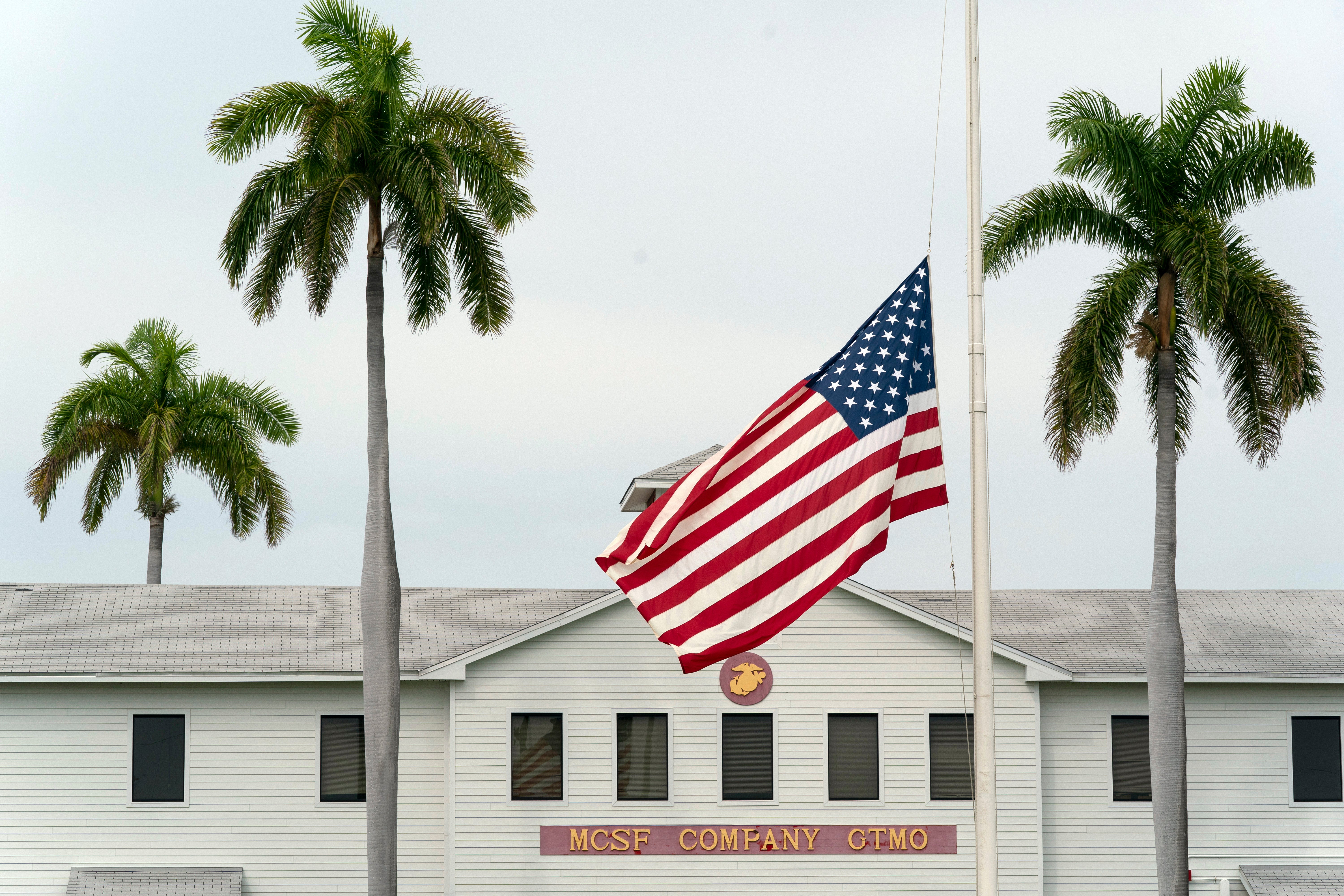2 Pakistanis reach home after being freed from Guantanamo
Officials say two Pakistani brothers who were held by the United States at the Guantanamo Bay military prison for two decades have been freed and returned home

Two Pakistani brothers held by the United States at Guantanamo Bay military prison for two decades were freed by U.S. officials and returned home on Friday, officials said.
They will be reunited with their families after a formal questioning by Pakistani authorities, according to security officials and a Pakistani senator.
Pakistan arrested Abdul and Mohammed Rabbani on suspicion of their links to al-Qaida in 2002 in Karachi, the country's largest southern port city. It was the same year Ramzi Binalshibh, a top al-Qaida leader, was arrested by Pakistan's spy agency on a tip from the CIA.
The releases come months after a 75-year-old Pakistani, Saifullah Paracha, was freed from the Guantanamo Bay detention center.
The two brothers arrived at an airport in the capital, Islamabad on Friday. Pakistani Sen. Mushtaq Ahmed Khan, the chairman of the human rights committee in the upper house of Pakistan's Parliament, tweeted Friday that the two brothers had reached Islamabad airport.
He said the men were “innocently imprisoned in Guantanamo Bay for 21 years. There was no trial, no court proceedings, no charges against them. Congratulations on their release. Thank you Senate of Pakistan," he wrote on Twitter.
Khan later told The Associated Press that the brothers were being sent to Karachi, the capital of southern Sindh province, where they lived with their families. He said he hoped the men will be reunited with their families soon.
The brothers' release was the latest U.S. move toward emptying and shutting down the Guantanamo Bay detention facility. Former President George W. Bush's administration set it up to house extremist suspects after the Sept. 11, 2001 al-Qaida attacks on the United States.
U.S. officials accused the brothers of helping al-Qaida members with housing and other logistical support. The brothers alleged torture while in CIA custody before being transferred to Guantanamo. U.S. military records describe the two as providing little intelligence of value, and that they did not recant statements made during interrogations on the grounds they were obtained by physical abuse.
The U.S. Defense Department announced their repatriation in a statement the previous day.
In Islamabad, Amina Masood Janjua, who heads the Defense of Human Rights Pakistan group, said the two brothers were from an impoverished family.
“Their family members suffered a lot after their arrest and transfer to the Guantanamo Bay detention center," she told the AP.
Janjua has been campaigning for the release of suspects arrested in Pakistan after the Sept. 11, 2001 attacks in the United States. She is the wife of Masood Ahmad Janjua, a businessman who went missing in 2005 in the garrison city of Rawalpindi. Since then, Janua has been fighting a legal battle for his release and others'.
On Friday, a close family friend of the two brothers told the AP that Pakistani authorities had formally informed the brothers' family about the release and their return to Pakistan.
The family friend, who is Pakistani and refused to be identified for security reasons, said the younger Rabbani learned painting during his detention at Guantanamo Bay, and that he was expected to bring with him some of those paintings.
He said Ahmed Rabbani frequently went on hunger strikes and prison officials fed him through a tube. He said the man remained on the nutritional supplements.
Guantanamo at its peak in 2003 held about 600 people considered terrorists by the U.S. Supporters of using the detention facility for such figures say doing so prevented attacks. Critics say the military detention and courts subverted human rights and constitutional rights and undermined American standing abroad.
Thirty-two detainees remain at Guantanamo Bay, including 18 eligible for transfer if stable third-party countries can be found to take them, the Pentagon said. Many are from Yemen, a country considered too plagued with war and extremist groups and too devoid of services for freed Yemeni detainees to be sent there.
Nine of the detainees are defendants in slow-moving military-run tribunals. Two others have been convicted.
__
Associated Press writer Ellen Knickmeyer in Washington contributed to this report.
Subscribe to Independent Premium to bookmark this article
Want to bookmark your favourite articles and stories to read or reference later? Start your Independent Premium subscription today.
